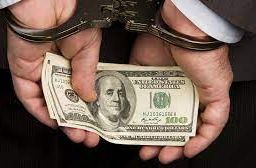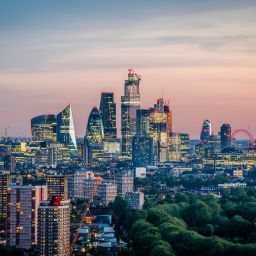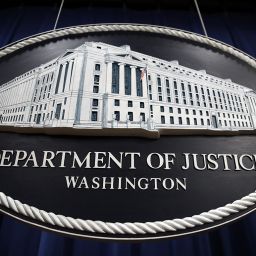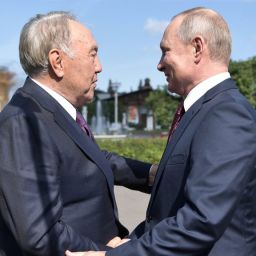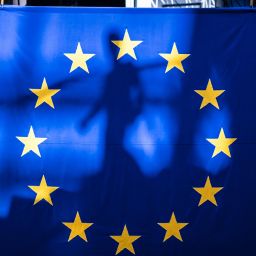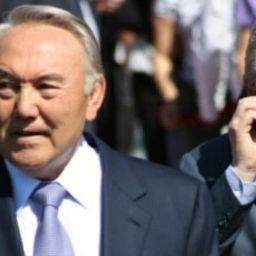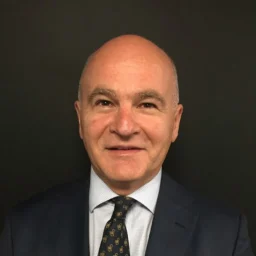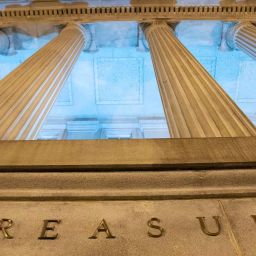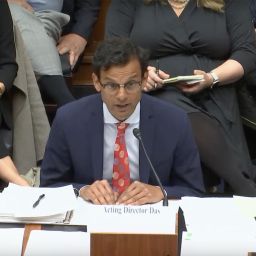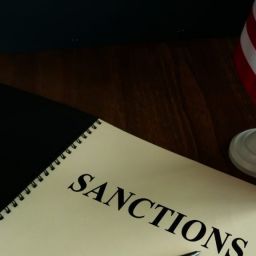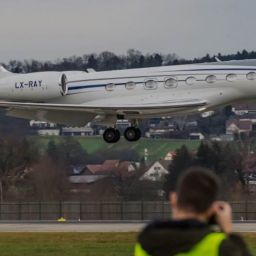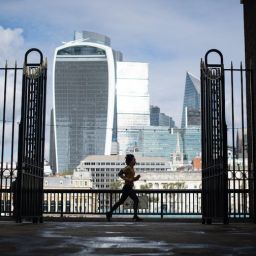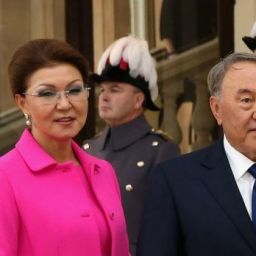Since Russia’s invasion of Ukraine, the huge flow of Russian wealth hidden offshore has gone in only one direction: away from its homes in London, New York and other once-welcoming cities to escape the new “iron curtain” of Western sanctions. As Russian oligarchs and kleptocrats have looked for another safe haven elsewhere, they have found it most notably in Dubai. Despite being a supposedly key U.S. partner in the Middle East, the United Arab Emirates has done more than any other country to help Russian kleptocrats evade U.S.-led sanctions over the war in Ukraine.
The UAE has had a dirty money problem for years, as the Gulf monarchy has shown considerable tolerance toward incoming foreign wealth in any shape or form. From Turkish mob bosses and over-sanctioned Middle Eastern authoritarians to Iran’s Revolutionary Guards, the Emirates have become one of the world’s leading money laundromats. Yet, unlike Panama, the Cayman Islands or the British Virgin Islands, attracting dirty foreign capital is not just a money-making scheme for the UAE. It has become an integral part of its policy aims to secure its interests through networks of foreign influence that blur the lines between business and diplomacy.
Wedged between the likes of Saudi Arabia and Iran and haunted by fears of losing its U.S. protection, the UAE has found it difficult to compete with its larger neighbors in the more conventional foreign policy spaces. In order to secure the federation of city states that make up the Emirates, Abu Dhabi has had to blend hard and soft power to create different levers of influence that help the rich yet conventionally small state.
In so doing, the UAE has redefined statecraft, delegating key parts of its foreign policy from large, state-run bureaucracies and ministries to smaller networks made up of state and non-state actors, with business interests often overlapping with national security. These various networks are effectively controlled and directed by a powerful triumvirate of three brothers in the ruling family in Abu Dhabi: Mansour bin Zayed al-Nahyan, billionaire businessman and minister; Tahnoon bin Zayed al-Nahyan, the UAE’s national security adviser; Mohammad bin Zayed al-Nahyan, Abu Dhabi’s crown prince and de facto ruler. The networks they have cultivated to serve Emirati interests include influential foreign dignitaries, commercial enterprises, banks, and Washington lobbyists and even think tanks—many either tied into Mansour’s investment portfolios or to Tahnoon’s Office of Strategic Affairs.

Delegating and even outsourcing the UAE’s foreign policymaking to these entities provides the Emirati government with plausible deniability when creating various dependencies overseas. The state-owned logistics multinational DP World, for example, is used to gain access to critical infrastructure like ports in places such as Djibouti, Berbera, Aden and Dakar, which gives the UAE significant political and economic leverage in those countries. The UAE does the same with its deep networks in global finance. During the Saudi- and Emirati-led blockade of neighboring Qatar, the Emirates’ influence inside Luxemburg-based Banque Havilland was used to wage a financial war against Qatar to destabilize its currency. The UAE has also cultivated—and lavishly funded—networks of conservative and right-wing politicians, lobbyists and advisers to influence and subvert official policymaking in Brussels, London and Washington.
Dubai’s status as a global financial hub—but, really, a place where it is easy to do business and hide your money, a Club Med for authoritarians and their financiers—is key to the UAE’s murky business-meets-foreign-policy agenda. From luxury beachfront properties to gold, cryptocurrencies and other shadowy financial services, the UAE has provided a range of investment opportunities to a cast of unsavory figures: Syrian regime financier Rami Makhlouf; Libyan warlord Khalifa Haftar; ousted Afghan President Ashraf Ghani, trying to hide away stolen public funds; members of ex-Kazakh strongman Nursultan Nazarbayev’s clan, in need of a safe spot for their money; and Iran’s sanctioned Islamic Revolutionary Guard Corps, looking to launder millions of dollars to fund its overseas operations.
With no questions asked, the UAE offers the perfect package for anyone trying to bypass sanctions for ill-gotten gains through corruption, exploitation and other illicit activities. For these powerful elites, the Emirates have become synonymous with their own family’s wealth and financial security—something the Emirati government can then utilize to broker other deals, shape attitudes and behavior, and get preferential treatment for the UAE in the countries of these elites amid a global competition for influence and access.

The same is true of harboring the Kremlin’s kleptocrats. In a country like Russia, where state and commercial networks are as intertwined as they are in the UAE, much of the seemingly private Russian wealth and equity leaving places like London, Monaco or Switzerland inevitably has links to President Vladimir Putin. At least 38 businessmen and officials tied to Putin’s inner circle and subjected to Western sanctions own 76 properties worth more than $314 million in Dubai alone, as The New York Times has reported. That list includes figures closely involved in Putin’s war efforts. Alexander Borodai, Russia’s former secessionist leader in Ukraine’s Donetsk region, and Ruslan Baisarov, one of Russia’s wealthiest businessmen and the chief financier of Chechen leader Ramzan Kadyrov, own multimillion-dollar properties in the Emirates. Kadyrov, whose Chechen militias have been accused of war crimes in Ukraine, and who himself operates as the Kremlin’s de facto Middle East envoy, maintains a personal relationship with Abu Dhabi’s crown prince, Mohammad bin Zayed. It is no surprise that he also has at least one opulent villa in Dubai, which he visits frequently.
Since the beginning of Russia’s war against Ukraine, Mansour and his office have increased efforts to incentivize Russian tycoons and oligarchs to join their compatriots on the shores of Dubai, because he understands how important their networks can be not just in managing bilateral relations with Moscow, but in advancing mutual interests in the region. Russia and the UAE share a fear of democracy and civil society mobilization, instead championing so-called authoritarian stability in the Middle East.
In Libya, the UAE merged its own official and unofficial networks with those of the Kremlin. Russia’s notorious mercenary outfit, the Wagner Group, has operated in Libya from shared Emirati bases in al-Khadim and al-Jufra. UAE-sponsored militia networks of Haftar’s self-styled Libyan National Army integrated with Russia’s mercenaries in their failed attempt to seize Tripoli in 2019. The Pentagon later alleged that it was Abu Dhabi that bankrolled the Wagner Group during that period.
All this is why the UAE isn’t rattled by the reputational costs of becoming such a visible hub for dirty money. Despite recently being listed on the money-laundering “grey list” of an international watchdog, the Financial Action Task Force, it is unlikely that the Emirati government will clamp down on these deliberate deficiencies in its financial system—since it can strategically exploit them for leverage with influential partners and clients in areas of the UAE’s strategic interests. The opportunities that Russian money provides for the UAE—in cultivating ties that mix business and diplomacy, and building networks for both political and economic influence—far exceed any image problems in the West. With the Kremlin’s kleptocracy relying on the UAE to shield itself from Western sanctions, Abu Dhabi will surely be able to call in a favor with Moscow before long.
Original source of article: dawnmena.org
